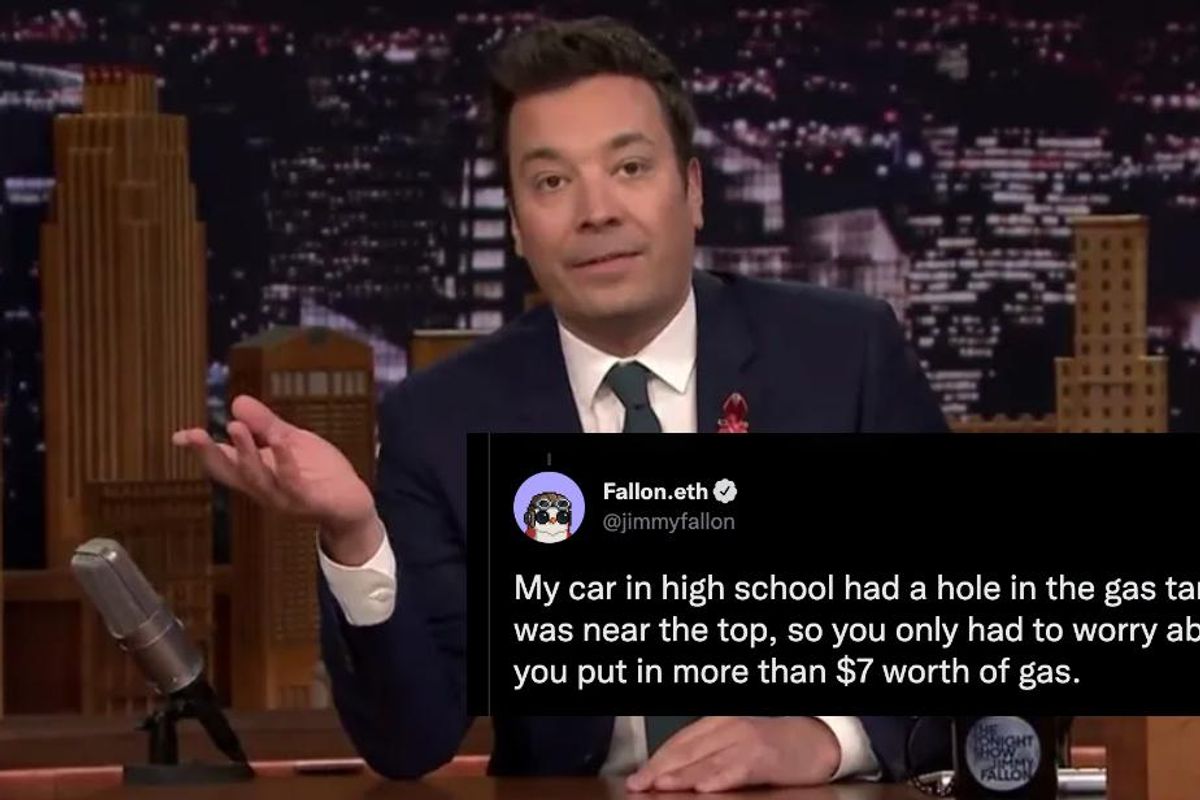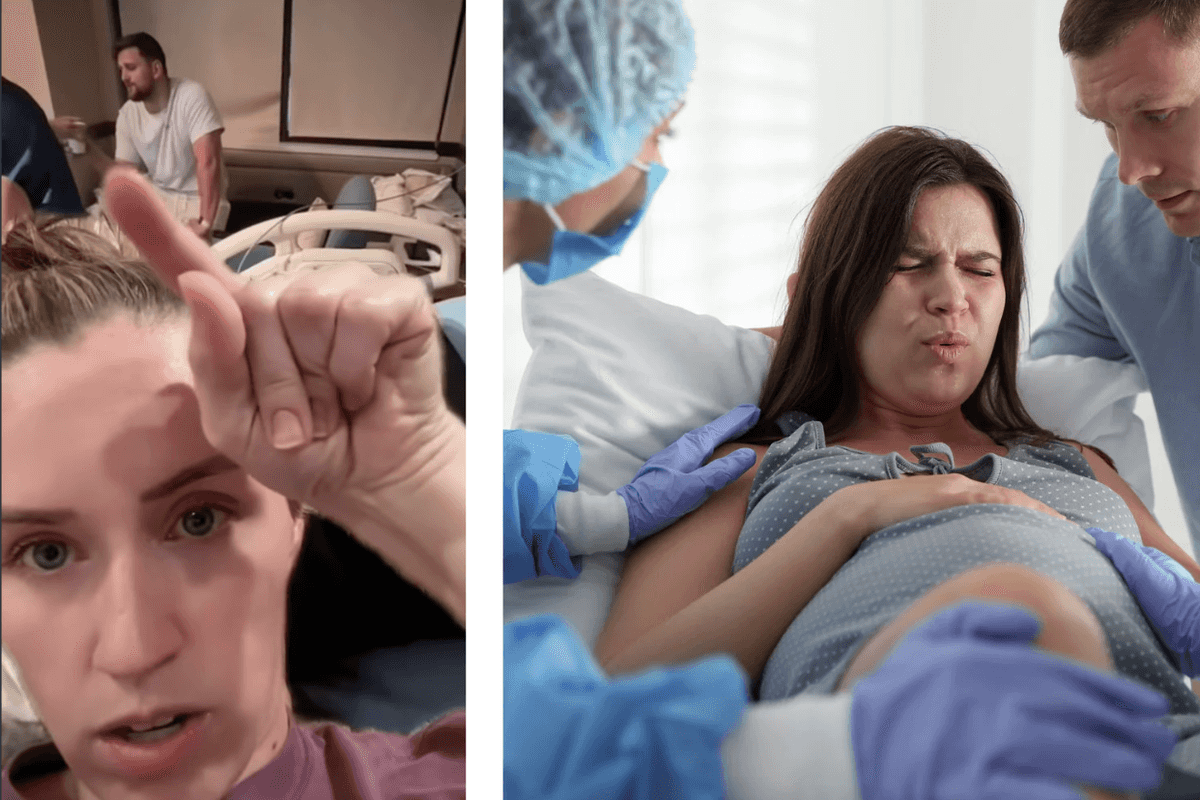Jimmy Fallon had people share their worst car stories and they are hilariously relatable
Whatever gets us from A to B, right?

That first car is a rite of passage into adulthood. Specifically, the hard-earned lesson of expectations versus reality. Though some of us are blessed with Teslas at 17, most teenagers receive a car that’s been … let’s say previously loved. And that’s probably a good thing, considering nearly half of first-year drivers end up in wrecks. Might as well get the dings on the lemon, right?
Of course, wrecks aside, buying a used car might end up costing more in the long run after needing repairs, breaking down and just a general slew of unexpected surprises. But hey, at least we can all look back and laugh.
My first car, for example, was a hand-me-down Toyota of some sort from my mother. I don’t recall the specific model, but I definitely remember getting into a fender bender within the first week of having it. She had forgotten to get the brakes fixed … isn’t that a fun story?
Jimmy Fallon recently asked his “Tonight Show” audience on Twitter to share their own worst car experiences. Some of them make my brake fiasco look like cakewalk (or cakedrive, in this case). Either way, these responses might make us all feel a little less alone. Or at the very least, give us a chuckle.
Here are 22 responses with the most horsepower:
1.
"1985 champagne Ford Taurus. Front and back license plates said 'Bernie'. Everyone who rode signed the roof lining. Brittany Spears sticker on the hood. Orange scuff marks lining the side from taking out rows of plastic construction barrels, on purpose." – @StaufferJacob85
2.
"My car in high school had a hole in the gas tank, but it was near the top, so you only had to worry about it if you put in more than $7 worth of gas." – @jimmyfallon
3.
"Our son’s first car has electric doors. They often malfunction and open / close at random when he’s parked. He has to time it just right as he dives in and out or he gets stuck!" – @Sohnzie
4.
"The sunroof blew off of #myworstcar the first time I drove it on the highway. I duct taped a piece of plexiglass over the hole & that was the roof for the next 2 years. The electrical system shorted out from water getting in and the alarm would go off randomly and the radio froze." – @hopesstillmedia
5.
"2 months after my Uncle 'got it checked by a mechanic,' the transmission went out. Over the years, the alternator broke down twice, the air conditioner, the serpentine belt, the brakes... I could go on. I think I should get a refund for the $1 gave my uncle." – @rednicknack
6.
"The 1st car I drove in the 80s was a Chevy Chevette in high school. It didn’t have 2nd gear so you had to go from 1st to 3rd. The driver’s seat was broken so we had a short 2x4 wedged between the back of the seat and the floor in the back." – @englishteacher8
7.
"I drove a 98 ford ranger in high school that could only go 45 mph before it started back firing. When you got up to 46, people thought you were performing a drive by shooting. Got stopped by the cops a few times for it." – @amylynnfish
8.
"My mom owned a 1992 Chrysler LeBaron, and its car radio all of a sudden stopped working. So whenever my mom wanted to listen to the 'radio', I had to do all the radio sound effects and static noise, sing random songs and commercial jingles, and recite ad voiceovers." – @DulceFloCruz99
9.
"2004 Honda Civic Coup. where to begin? the muffler that would fall off every couple miles, the ac that never worked, break pad that fell into my hand or the fact only one of the vehicle's TWO doors would open?!" – @moshimotions
10.
"I learned to drive a stick car in '86 on a '76 VW Rabbit. There was a hole in the floor near the shift. I always felt like Fred Flintstone and if I had a problem I could just use my feet!" – @AnnMcD87
11.
"I had a 91 Acura and it had some alternator problem where it would not start if it was hot (I lived in Pasadena at the time) so it was hot a lot. In my 21 year old mind, I decided to not fix the problem, just park the car on a slope wherever I went so I could start it." – @astovesand
12.
"My first car, a maroon Mitsubishi Colt Vista, had a nest of bees living in both the driver and passenger side doors." – @BrnSkr
13.
"My car in college always overheated and broke down in the same place going up a mountain. I often had to drive in front of a sign that said 'Kentucky prison ahead, please do not pick up hitchhikers.'” – @HancockTraci
14.
"My first car when I was 17 had a hole in the pipe that takes the petrol to the tank, I’d put 30 in but average around 15 that made it to the tank if I was lucky. When I drop into the forecourt I would get the “get the f#c@n sand bucket ready” eye roll of the cashier." – @asalllas
15.
"My first car was a 1981 gold Honda civic station wagon called the Jesus-mobile because it had one of those fish stickers on the back and would leak water and make a whine noise." – @KyleKerouac
16.
Oops #MyWorstCar pic.twitter.com/K0a6BVJQBL
— Pierre Menard (@BrnSkr) May 18, 2022
Need they say more?
17.
"My first car was a Corvair. It had many issues, but the worst was when the motor mounts broke without warning and the engine literally fell out into the street while I was driving." – @styllpoint
18.
"I stapled a tie die tapestry to the roof of the interior and it fell down while my mom was backing out of the driveway and she hit the mailbox." – @JDylanNYC
19.
"I had a Toyota that was 4 different colors. Had replacement parts on it but couldn't afford to get it painted. It had a cracked distributor cap so every time it rained, I had to take it apart to dry it out so the car would start." – @kmacassar
20.
"#Myworstcar was an Acura that my dad bought at the police auction. He made me deep clean it and something suspiciously blood-colored came up from the back carpet." – @KatieKlauss
21.
"In HS I had a 1970 Ford Maverick. Every time I turned left in the summertime, the AC drain drained into the passenger floorboard. Well-placed coffee cans caught most of the water." – @saxmelody
22.
"My Brother and I had to get out and walk to the top of steep hills on family trips because our car was so underpowered." – @Sohnzie
This article originally appeared on 5.19.22
- Jimmy Fallon asked people to share their 'dumb bets' and the ... ›
- People share their prom fails to Jimmy Fallon on Twitter - Upworthy ›
- Jimmy Fallon asked people to share why their family is weird ... ›
- The Army trick that can cool down your body temperature in minutes - Upworthy ›
- Finance expert crushes the logic of buying a new car - Upworthy ›
- Car community surprises 4-year-old boy with car parade after mom reached out on Facebook - Upworthy ›
- Owner of Porsche 911 sees man taking photo of it, gives him once-in-a-lifetime surprise - Upworthy ›
- Ex-salesman shares 2 clever phrases that will make car dealers leave you alone - Upworthy ›
- Conan O'Brien returns to 'Tonight Show' with Jimmy Fallon - Upworthy ›
- Parents buy Ford Mustang for teen son with cancer - Upworthy ›
- Math professor's thermo-dynamic car-colling hack - Upworthy ›








 A Baby Boomer couple.via
A Baby Boomer couple.via  A Baby Boomer couple.via
A Baby Boomer couple.via 
 This is where Gabrielle tracks her rejection journey.
This is where Gabrielle tracks her rejection journey. Social rejection feels just like physical pain to the brain.
Social rejection feels just like physical pain to the brain. Asking questions can be a form of bravery.
Asking questions can be a form of bravery.

 Woman working, productively.
Woman working, productively.
 An exhausted mom and her baby.
An exhausted mom and her baby. A mom yawns while feeding her baby.
A mom yawns while feeding her baby.